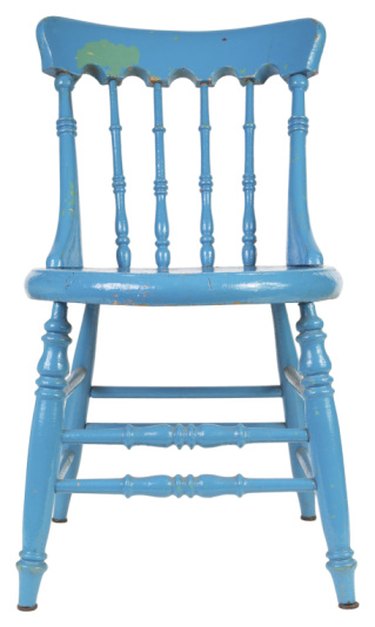Things You'll Need
Gloves
Paint scraper
Lacquer thinner
Shop towel
Wire brush
Heat gun
Putty knife
Pliers

Two-part epoxy forms a strong bond that has low shrinkage and seals water out of surfaces and joints. Woodworkers use epoxy in joints to hold a project together permanently with great strength. Fiberglass boat repairs use layers of epoxy and fiberglass cloth to seal cracks and fill in holes that are water-tight. Permanent adhesives are easier to remove before they dry, but with the right tools you can remove cured two-part epoxy also.
Non-cured Epoxy
Step 1
Put on gloves to protect your hands from the epoxy.
Video of the Day
Step 2
Place a paint scraper on the surface at a 45-degree angle. Push the scraper down the length of the wet epoxy to remove it.
Step 3
Clean the paint scraper with lacquer thinner to remove it from the scraper before it dries. Pour lacquer thinner on a shop cloth and rub it on the surface to remove any small traces of the epoxy.
Cured Epoxy
Step 1
Put on gloves to protect your hands.
Step 2
Squeeze the trigger on a heat gun and direct the tip on one edge of the epoxy. Heat the cured adhesive until a paint scraper will push through it. If there is fiberglass cloth on top of the epoxy, heat the area and then pull the cloth up with a pair of pliers. Work in one direction with the heat gun ahead of the pliers to soften the epoxy until the fiberglass cloth is removed.
Step 3
Scrape the epoxy off the surface with a paint scraper at a 45-degree angle until it is removed.
Step 4
Clean the area with lacquer thinner on a shop towel. Clean the scraper with lacquer thinner.
Step 5
Sand the area with sandpaper to remove the small bits of epoxy that are in the fibers of wood or fiberglass.
Tip
If you are reapplying epoxy to the item, brush the new coating into the grain of the project with a wire brush for better adhesion.
Warning
Remove and apply epoxy in a well-ventilated area to avoid fumes when the adhesive and hardener mix together.
Video of the Day